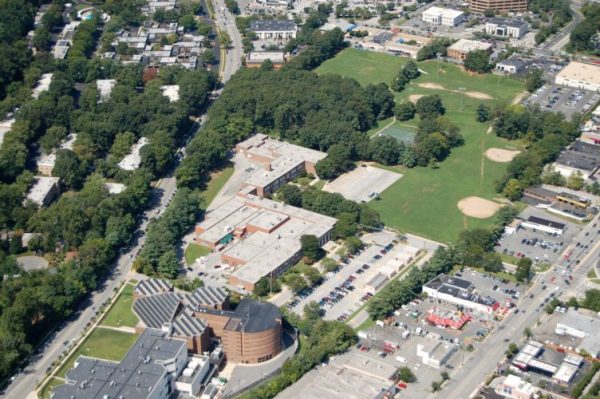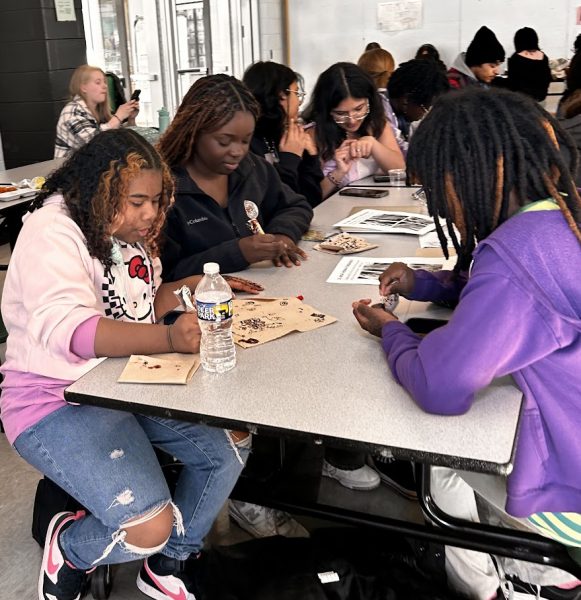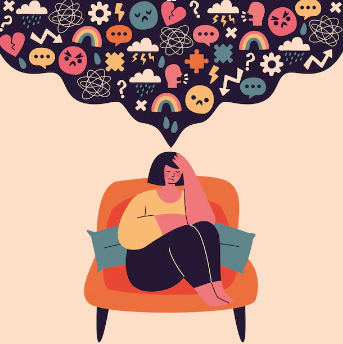
There is a school in Towson where, amidst the academic rigor, lies tradition & customs that have flourished through the years. As one navigates the Commons of Carver Center, they are immediately thrown into a place of celebration & uniqueness. To the vibrant colors on the visual students’ art that adorns the school walls to the melodic sounds of peers laughing, it’s evident that this school is full of unique people.
The true heart of Carver’s culture goes beyond this though. Leading the diversity is the numerous clubs that are dedicated to celebrating & promoting students own interests & identities. Led by these passionate students, the clubs serve as areas of inclusivity, offering platforms for students to share their interests, background/heritage, out-of-school-life, etc & also as a place to learn from one another without fearing mistakes. Students run all their own clubs too; teachers are only involved with sponsorship. These student-ran clubs serve as great opportunities for students to take on leadership roles & create an area for their peers to address issues, have a safe space, & appreciate the background of the club’s interest, religion, culture, &/or language.
I was given the chance to speak with a few club representatives about their personal thoughts on this matter, plus how they believe their club impacts the school community.

“MSA is an open space where Muslims, Arabs, [etc] are able to come together & celebrate each other’s religions & cultures.” Lena Ebraheem, the Co-President of the Carver Center MSA told me. “The whole point of MSA to allow us to have a known safe space to not only express our religion, but to let non-Muslims learn more about our community.” During meetings they talk about a variety of topics, from discussing “the hardships Muslims face locally & globally, the beauty behind being a Muslim” all the way to “what’s unfolding in countries that are primarily Muslim, because that also affects us” Lena stated. “[Our] main goal is to spread awareness about these groups of people. We always reassure the Carver Center community that we are accepting of everyone. We want MSA to be a space where students help nurture [other] students.” MSA also hosts a few events during the year, an example would be their recent “Henna for Palestine” fundraiser where they did student & staff henna in exchange for donation money. “All funds went to the Palestinian Children’s Relief Foundation.. students had donated around 800 dollars & we considered this a huge success!” Lena said to me with a large smile on her face. Students’ efforts extend beyond the confines of club meetings, as so many students who aren’t MSA members showed up & chipped in to help an important cause. It’s times like these where Carver students really show the various aspects of their school life & how diversity doesn’t just bring students together to help, but to also aid them in become active citizens in a bustling society.
As Carver Center continues to evolve, so does its students & their dedication to embracing diversity & fostering cultural understanding. Through ongoing initiatives & programming, students become equipped with the tools they need to navigate an increasingly interconnected world with empathy & respect. When students engage with their peers they are not just acquiring knowledge from textbooks; they are gaining invaluable life skills – empathy, respect, & the ability to bridge cultural divides. These are the skills they will carry with them as they venture into the increasingly interconnected world, ready to be agents of positive change. Ultimately, Carver Center students will realize that the many types of cultural expression at Carver Center is not just about celebrating differences—it’s about finding common ground & forging connections that transcend cultural boundaries. It’s about recognizing that diversity is our strength & embracing it wholeheartedly.

Brandon Bands, a member of the Black Awareness Club, explained this when he told me how “as a member of BAC, [he has] witnessed during his years at Carver that there is real power in cultural expression & [that it] really has shaped our school community.” He also explained to me that “BAC provides a place for every Black student at Carver to come together & talk about experiences they share, things that upset them, & to also help us learn about ourselves.” Black Awareness Club has also helped the entirety of Carver to celebrate Black history, achievements, & struggles. A photo by @visionsbyka on Instagram, displays one of the many times that Carver Center has hosted a “Black History Month” assembly where they highlight not only Black students at Carver, but also their talents. In 2023, students got together to sing, dance, act, cry, & overall put on a performance to beautifully represent the Black community. “The aim to raise awareness & promote inclusivity through education & advocacy is achieved by these events.”
In the end, Carver Center is more than just a place of learning—it’s a microcosm of the world at large, where diversity is celebrated, differences are embraced, & understanding is cultivated. These students are catalysts for change, from organizing cultural festivals to collaborating with other clubs & organizations, they are single-handedly enriching the school community with their diverse perspectives.




